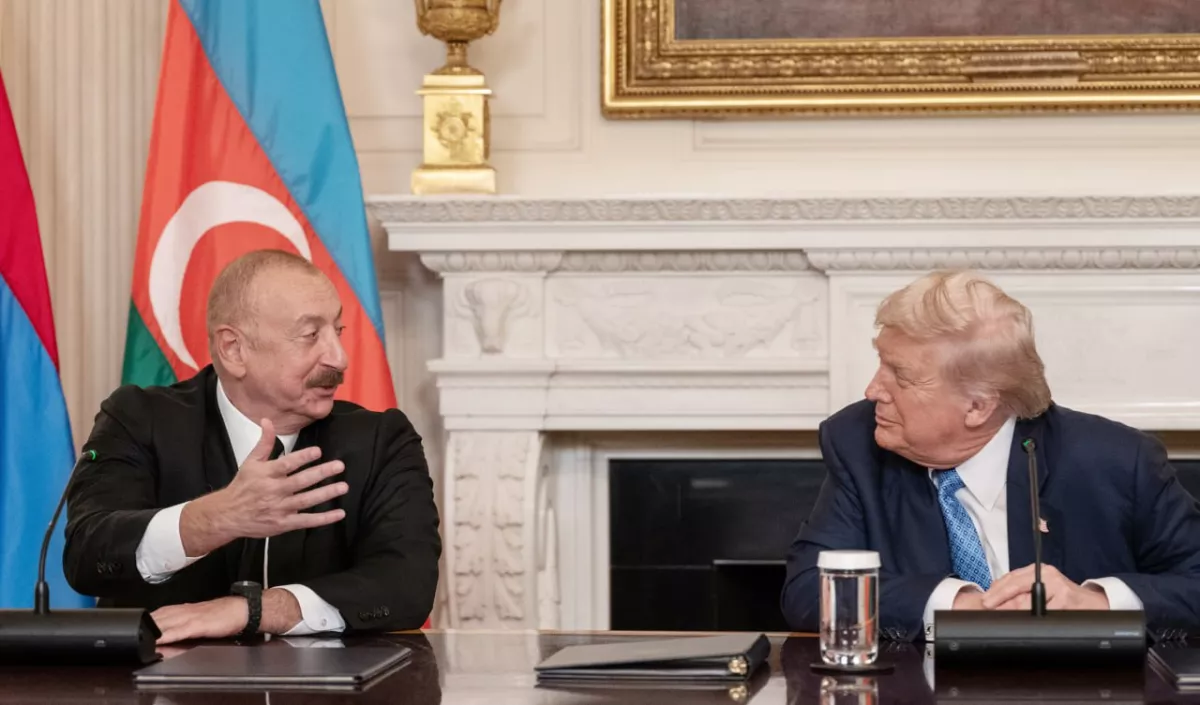Balancing interests Diplomacy opening new horizons
A working visit by President Ilham Aliyev to the United States, during which he participated in the milestone 80th session of the United Nations General Assembly in New York, became yet another confirmation not only of the growing international interest in Azerbaijan as a leading country in the South Caucasus region but also of the strengthening of partnership ties with the world’s foremost power, bringing Baku and Washington closer within the framework of international relations.
This is largely facilitated by the trusting relationship between the presidents of Azerbaijan and the United States, as reflected in U.S. President Donald Trump’s warm remarks about Ilham Aliyev. During an official reception held on 23 September in New York, the White House leader stated that he was proud of the President of Azerbaijan.
“I'm very proud of you. You're amazing people,” Donald Trump told Ilham Aliyev, emphasising this in the context of the Armenian-Azerbaijani normalisation achieved by the leaders of Azerbaijan and Armenia under U.S. moderation on August 8 in Washington.

Notably, the current exceptionally positive agenda on the Azerbaijan–U.S. track has been shaped not only by the normalisation of relations between Baku and Yerevan, but also by U.S. President Donald Trump’s decisive action regarding the long-standing Section 907, which had historically hindered deeper cooperation between the two countries.
For context, in 1992, the U.S. Congress, under pressure from the Armenian lobby, adopted Section 907 of the Freedom Support Act, which prohibited U.S. government assistance to Azerbaijan. While successive American presidents had routinely waived its effects on an annual basis, President Trump’s decision to effectively lift the restrictions marked a turning point. This move not only strengthened bilateral relations but also enhanced Azerbaijan’s profile both regionally and on the global stage.
At the same time, this political move by the U.S. President dealt a crushing blow to the interests of Azerbaijan’s detractors, primarily Armenian revanchists, who continue to seek opportunities to ignite a new war in the region.
In this context, it is worth citing a few points from an article by Wesley Alexander Hill, recently published in the American magazine Forbes, which highlights two important facts. First, the anti-Azerbaijan Section 907 has completely outlived its purpose, and it is now time to fully repeal this outdated provision to fully implement the promises of TRIPP. Second, Azerbaijan is consistently pursuing a foreign policy that aligns with U.S. interests.
This impartial publication provides a sober assessment of Azerbaijan’s foreign policy under the leadership of President Ilham Aliyev, which is welcomed by the majority of international actors.

It is therefore no coincidence that a recurring theme in all meetings held by President Ilham Aliyev in New York was the signing of the peace agreement between Azerbaijan and Armenia, his leadership in promoting a peaceful agenda, and his contribution to global security.
This recognition was clearly reflected in the remarks of the President of Finland and the Prime Minister of Greece, who congratulated President Aliyev on the historic achievements realised in Washington. Such acknowledgements go beyond mere diplomatic protocol—they underscore Azerbaijan’s international significance, its regional role, its peace-building initiatives, economic importance, and potential as a global partner.
In the context of U.S.–Azerbaijan relations, another important nuance deserves attention. A clear indicator of today’s friendly ties between Baku and Washington is the movement toward a mutually beneficial balance, shaped in part by the recent Washington meeting. In particular, the agreement on the implementation of the Zangezur Corridor—a matter of fundamental importance to Azerbaijan—demonstrates that this issue has become a priority for U.S. policy in the South Caucasus. The United States’ eagerness to promptly translate the agreements on this transport route into practical action reflects the high level of American interest in the region.
Taken together, these developments confirm that the U.S. is committed to a long-term partnership with Azerbaijan, a relationship that promises tangible benefits for the entire South Caucasus.








